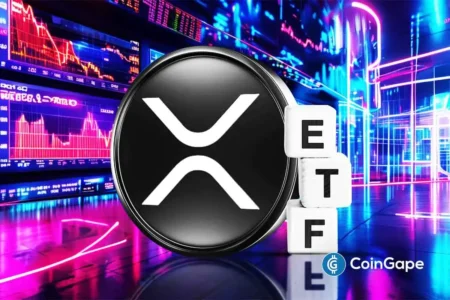Aster DEX Pauses Token Airdrop Amid Consistency Complaints: Insights and Updates
The world of decentralized finance (DeFi) is always evolving, as witnessed by recent developments involving Aster DEX. Following rising concerns about discrepancies in the ASTER token airdrop, Aster DEX has temporarily halted its distribution. The issues stem from inconsistencies in user allocations that did not align with the expected snapshot ratios, prompting the team to conduct a thorough review and ensure fairness.
Aster DEX Reviews Allocation Discrepancies
The Aster DEX team has reported that they are actively reviewing allocation discrepancies affecting certain users. According to the update, it was expected that most users’ allocations would not drop below their final snapshot holding percentage in each epoch. The review aims to rectify any errors and ensure fair distribution before moving forward with the airdrop scheduled for October 20, 2025. Aster’s commitment to transparency means that adjustments will be communicated clearly to the community.
To further ensure fairness, Aster has implemented a refund option for affected participants. This decision follows a surge in investor confidence after the ASTER token’s recent listing on Binance, which helped boost its price. The refund window will remain open for 48 hours after the airdrop, and the exchanges will facilitate refunds in USDT, emphasizing Aster’s dedication to its community.
Transparency and Community Trust
Aster DEX has prioritized transparency as it navigates this allocation review process. Delays in the airdrop are an unfortunate but necessary step to rectify discrepancies and maintain the integrity of the distribution. The team did not provide specific details about the nature of the inconsistencies; however, they indicated that issues stemmed from allocation calculations linked to reward epochs, which determine token rewards based on user participation.
Feedback from the community has been invaluable in identifying these inconsistencies. Aster’s leadership has expressed appreciation for ongoing input, reinforcing their commitment to fostering a collaborative environment. By listening to community concerns, Aster DEX not only addresses immediate issues but also builds a sustainable ecosystem for the future.
Criticism from Influencers and Community Reactions
The delay has come on the heels of rising criticism from prominent community figures, including influencer Quinten 048.eth. He revealed that despite generating over $100 million in referral volume and attracting 250 sign-ups, his allocation amounted to only 338 ASTER tokens. Quinten has alleged that Aster and Binance may have manipulated the rewards process for insiders, claiming that a disproportionate share of the rewards went to a select few.
This situation raises broader questions about fairness in airdrop distributions, particularly as DeFi projects continue to grow. Quinten’s assertions have sparked further dialogue within the community, particularly regarding the distribution model and its implications for retail investors. Nevertheless, he noted that the limited allocations may ultimately benefit the token price, as fewer tokens in circulation could sustain higher valuations.
The Role of Influencers in Shaping Perceptions
The controversy surrounding the Aster airdrop highlights the significant influence that prominent users and influencers have within the cryptocurrency space. Their experiences and opinions can shape community perceptions and, in some cases, lead to broader calls for accountability. Binance founder, CZ, even took to Twitter to engage with Quinten directly, seeking clarity on the influencer’s calculations.
As conversations about allocation fairness and distribution models continue, the responses from individuals in prominent positions are likely to carry weight. The situation exemplifies the importance of transparency and communication as private events can quickly become public discussions, impacting brand reputation and user trust.
Remaining On Schedule
Despite the challenges, Aster DEX remains committed to launching the airdrop by its revised date of October 20. The review process is expected to update allocation numbers shortly, allowing affected users to make informed decisions regarding the refunds in USDT. By taking these steps, Aster aims to reaffirm its commitment to community engagement and satisfaction.
The path forward will necessitate careful monitoring and a willingness to adapt based on community reactions and feedback. Aster’s proactive approach to addressing the issues reflects a larger trend in DeFi: the need for projects to prioritize user concerns and engagement to foster long-term growth and trust.
Conclusion
In conclusion, the halt in the ASTER token airdrop has brought essential concerns surrounding allocation fairness to light, prompting Aster DEX to take proactive measures for resolving discrepancies. Their approach showcases the significance of transparency, community involvement, and communication in navigating challenges in the DeFi space.
As the cryptocurrency landscape continues to evolve, Aster’s commitment to these principles can serve as a model for future projects facing similar issues. Through addressing allocation discrepancies and engaging with community feedback, Aster DEX is not only tackling immediate challenges but also laying the groundwork for a more reliable and trustworthy ecosystem in the future.

















